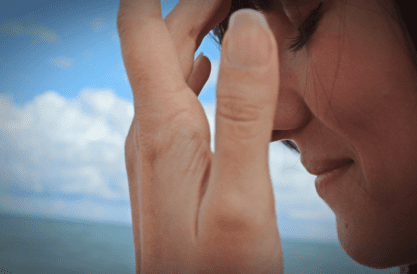Guilt is undoubtedly a fundamental emotion that each and every one of us has experienced to a certain extent on various occasions in our lifetimes. As far back as the 19th century, Sigmund Freud, the father of modern psychanalysis, believed that guilt is the end-result of the collision between the ego and the superego, more specifically the parental subconscious influence. There are way too many theories concerning the origin of guilt, its causes and the behavioral responses it triggers in human beings, but this post is not intended to be a lecture on psychology or psychanalysis, this is why Ill only stick to the important facts in the following lines.
Its no secret to anyone that people who have bipolar are often overwhelmed with feelings of guilt, rumination and low self-esteem, especially during depressive and mixed affective episodes. I was aware of this mere fact too, but I hadnt realized how accurate and stringent it is until last summer, when I did my med school summer practice in a psychiatry hospital. One of the most striking encounters I had there was with M., a super cute and talented girl diagnosed with bipolar for two years. On that occasion, I also realized that talking to patients with bipolar is one of the most special feelings one can get. Its like youre browsing a book you didnt even know youd been longing to hold in your hands and with every page you turn you see a new and astounding perspective on the story youre reading. Anyway, going back to M., while she was on a high, she confessed to me that she wished she could never leave that hospital, because she felt she could be so useful to the people in need if she became a nurse. But there are people who need you outside of these hospital walls too, you know, I retorted. Well, yes, she whispered half-heartedly, but I only feel like helping strangers, not my family or my friends. Why is that? I asked unknowingly. Do you think they are undeserving? As far as I could see, your parents care deeply about you.
Of course it wasnt my intention to make her feel bad about herself or her feelings, but seconds after I said those words, tears started streaming down her face and I couldnt seem to soothe her pain in any possible way. She started blaming herself for being `like that` and for not being grateful enough for everything her parents had done for her. She was one of the not so many lucky cases, having her parents unconditional support all along, and felt that her condition was a burden that they didnt deserve to carry on their shoulders. Nevertheless, she couldnt repress her feelings concerning the need of helping anybody but them, which made her feel so much worse about herself. She was seasoning in a circle, totally unable to find her way out, a situation in which many of us with bipolar or not find ourselves every now and then.
What is there to be done, then? First and foremost, TAKE THE BURDEN OFF YOUR SHOULDERS! Bipolar disorder is not a sexually transmitted-disease, ergo, there are no reasons for you to blame yourself for being neglectful and for contracting it when there were so many ways you could avoid doing so. Bipolar isnt cancer either, but although it doesnt leave any trace in your blood or on a CT scan, it doesnt mean it is less debilitating than any given organic affliction. People are generally reluctant to seek help when it comes to delicate personal matters such as mental health, but acceptance is the first step towards solving a problem. Guilt is a parasite, a highly adapted rascal that takes advantage of our weakened systems in order to install its reign. As soon as this happens, self-destruction stands sharp against the sky and threatens to obscure our horizons. Is this what we want? Is this what you want?
Im pretty sure the answer to this question cant be positive. But you know what can be? You.
Look in the mirror. Open your eyes. Open your mind. Let the sun come in. Unofficial studies suggest that this greedy parasite called guilt is photophobic, so why dont you try to kill it with light and positivity? Your clear mind will always be indebted to you.
For more information on how to cope with guilt and let the sun come in, click here.
See the rest of Ancu?a’s posts here.


